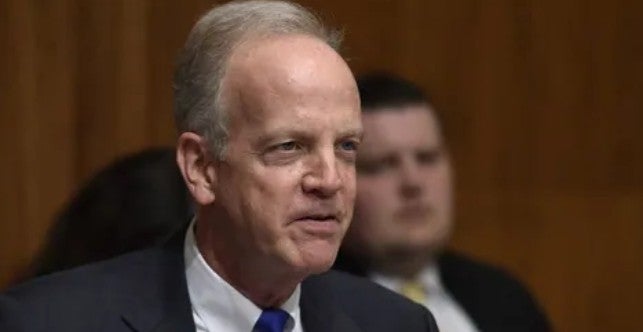The Commerce Department has now processed more than 45,000 of a total of roughly 80,000 exclusion requests, a BIS official told a Senate panel on Tuesday.
The Commerce Department hopes to roll out a new Section 232 exclusion request portal at the end of April or in May, which should expedite the process from where it is today, Commerce Deputy Assistant Secretary for Export Administration Matthew Borman told Senate appropriators on Tuesday.
Commerce announced the process, which will replace the Regulations.gov filing process, in November.
The Bureau of Industry and Security (BIS) has now processed more than 45,000 of roughly 80,000 requests for exclusion from Section 232 metal tariffs, Borman said during a hearing of the Senate Appropriations Commerce Subcommittee on Commerce’s proposed fiscal year 2020 budget.
After a reprogramming authorization Commerce received in FY18, Commerce has hired contractors to accelerate the exclusion process, and “we’ve made a number of process improvements,” Borman said.
It takes roughly 70 to 90 days to issue an exclusion decision for requests that don’t generate objections, but it can take “well over” 100 days to issue decisions on requests that generate objections, rebuttals and surrebuttals, he said.
At the request of many lawmakers and companies, Commerce implemented a rebuttal/surrebuttal process last year that allows more informed decisions but “by definition pushes the timeline out,” Borman said.
Commerce is requesting $4.5 million for FY20 to facilitate its exclusion process, the same amount provided in FY19 spending legislation, Borman said.
Subcommittee Chairman Jerry Moran, R-Kan., expressed concern that Commerce’s FY20 budget doesn’t plan for an exclusion process in case President Donald Trump decides to impose Section 232 tariffs on automobiles. Trump’s decision is due on May 18, after Commerce submitted its Section 232 report on automotive imports to the White House in February.
If auto tariffs are imposed, “the issue for me and my colleagues is you’re probably going to be asking for the opportunity to reprogram funds for something we appropriated to something else,” Moran (pictured above) said to Under Secretary of Commerce for International Trade Gil Kaplan during the hearing. “And just the integrity of the appropriation process is important as we try to make decisions where we’re going to put money in this budget. But we can have further conversations.”
Kaplan said it’s “maybe early” to anticipate any potential Section 232 action to limit automotive imports.
But pressed by Moran later in the hearing, Kaplan said the current exclusion process for metal tariffs — which produced significantly more requests than predicted — has taught Commerce that it needs to be “very well-prepared and predict what might occur if there is any action” on the automotive front. “And we can look at the steel and aluminum situation and learn from that experience.”
Compared with FY19 appropriations, Commerce also is requesting an additional $2.9 million for the International Trade Administration to implement a law enacted last year reforming the interagency process of the Committee on Foreign Investment in the United States (CFIUS) and an additional $2.5 million for BIS’ role in implementation of the Export Control Reform Act of 2018, which is part of the CFIUS reform legislation, Commerce stated in written testimony for the hearing.
Those proposed additions are planned to support reviews on foreign investment and emerging technology, Borman said.











